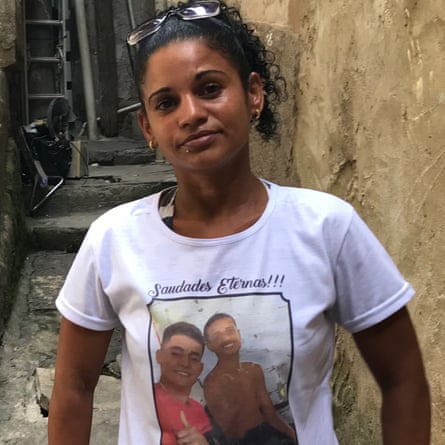When he was campaigning to become the governor of Rio de Janeiro state, Wilson Witzel promised “shoot-to-kill” tactics against armed members of the city’s powerful drug gangs.
Now, after a deadly operation in which 13 people were killed, fears are rising that police in Rio are already implementing the policy.
Police and state prosecutors have opened investigations following the bloody operation in the Fallet/Fogueteiro favela in central Rio last Friday.
Relatives admit that some of the dead were drug gang members, but say they had surrendered their weapons to police before being summarily executed. Two other victims, including a teenager with no gang links, were tortured and shot dead in their own home, according to residents.
“Nothing justifies this. They had surrendered. The police preferred to execute them,” said Roberta Jeronimo, 23, a student whose brother Carlos Castilho, 26, was one of ten men reportedly killed in the same house.
Jeronima admitted her brother was a gang member. Morgue workers told another sister Priscila Rosa, 33, that he died after being stabbed and shot at close range. “It was execution. I want justice,” she said.
“It’s a very symbolic operation,” said Ignacio Cano, a professor of sociology at the State University of Rio, who said he expects police killings to rise: “Everything indicates there will be an increase because there is an open encouragement from both the federal and state government.”
Brazil already sees shocking levels of police violence. Deaths due to police “interventions” rose 20% in 2017 to 5,144, according to most recent figures from the Brazilian Public Security Forum. 367 police officers were killed in the same period.
During a heated public meeting in the favela on Tuesday residents alleged the victims were tortured and stabbed before police rushed off with the bodies.
At the meeting, Pedro Strozenberg, an ombudsman for Rio’s public defender’s office, said there had to be a “serious, transparent investigation”. But he acknowledged that there was support for the police action in the city. “A good part of society thinks this is right,” Strozenberg said.

Witzel, a judge and former marine, has argued that police should be able to shoot and kill armed gang members. His office did not reply to requests for comment on Tuesday, but on Wednesday Witzel tweeted his support for the raid. “What happened in the Fallet/Fogueteiro was a legitimate police action,” he said in a video. “Our police acted to defend good citizens.”
Witzel is an ally of the new, extreme rightwing president Jair Bolsonaro whose promise of a hardline response to Brazil’s soaring violent crime was key to his electoral success. Bolsonaro also promised impunity for officers who kill criminals.
Rank and file officers have taken note of the change in tone, say locals. Rio’s Extra newspaper reported on Tuesday that 42 people were killed in police operations in ten days.
One victims of the Fallet/Fogueteiro raid was Felipe Santos, 26, whose body was found the next day in a nearby forest. “He did not die from a gunshot. He was knifed to death,” said his partner Vanessa de Carvalho, 38, who admitted that Santos was involved in the drug trade.
Friday’s raid came after days of gun-battles between the Red Command (Comando Vermelho), the powerful drug gang which controls the favela and its rivals the Pure Third Command (Terceito Comando Puro).
Police said in a statement they were fired at by heavily-armed criminals. They said eleven criminals were arrested and 15 gang members found injured and taken to a hospital where 13 of them later died and two remain hospitalised.
Rio’s municipal health authority said 16 reached the hospital – of whom 13 were dead on arrival.
Residents said there was no gunfight after police sealed off the street in front of the house. A four-minute video circulating on social media shows a police vehicle parked in a quiet street when a barrage of shots rings out.

Other videos showed dead bodies of young men with what appeared to be bullet holes, gaping wounds and bruising.
Two other victims were not in the house. Eline Vicente da Silva, 36, a cleaner, said her sons David, 22, and Maikon, 16, were tortured and then killed in her tiny, home on a steep alleyway while she was at a local supermarket.
Afterwards, police refused to let her enter. “Go and cry at their funeral,” she said one officer told her.
She said David had been jailed in 2017 after police arrested him in a house where they found stolen goods, adding that Maikon was a school student with no gang involvement.
One neighbour, speaking on condition of anonymity for fear of reprisals, said they heard the two boys being beaten and shouting “don’t kill us” before a volley of shots rang out.
Cano, compared the killings to the extrajudicial executions of drug users in the Philippines under Rodrigo Duterte and said there were indications of “summary executions”. “It’s crucial that state prosecutors now carry out a thorough investigation,” he said.









